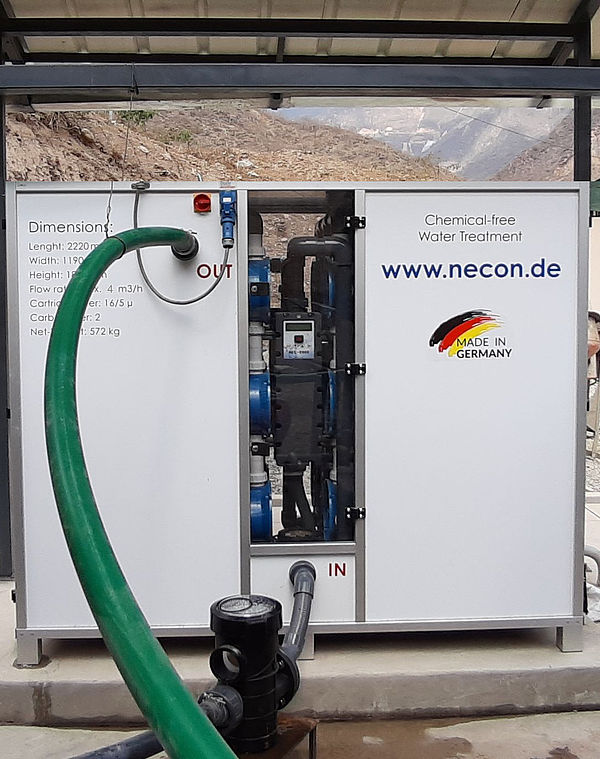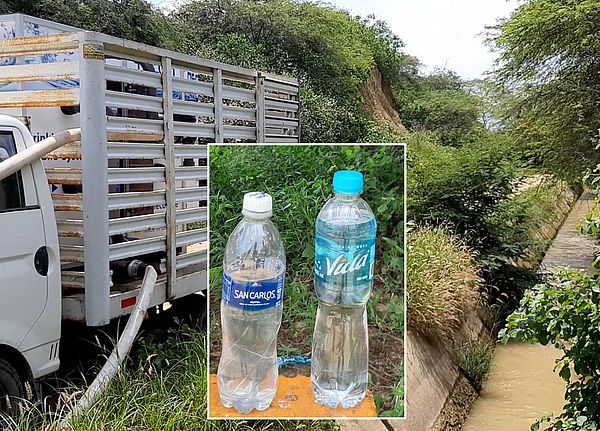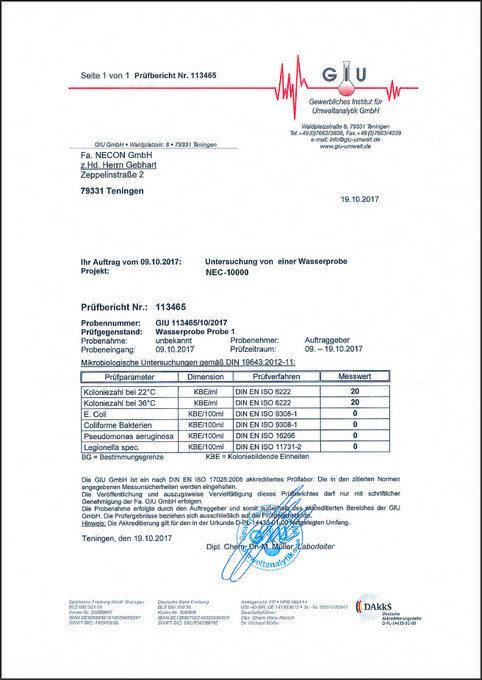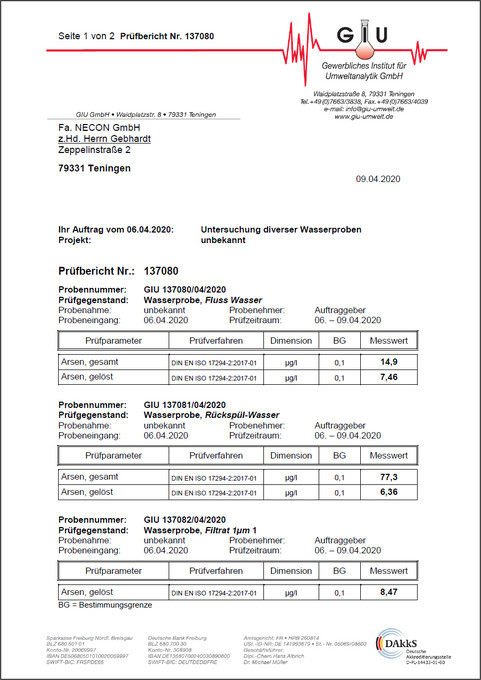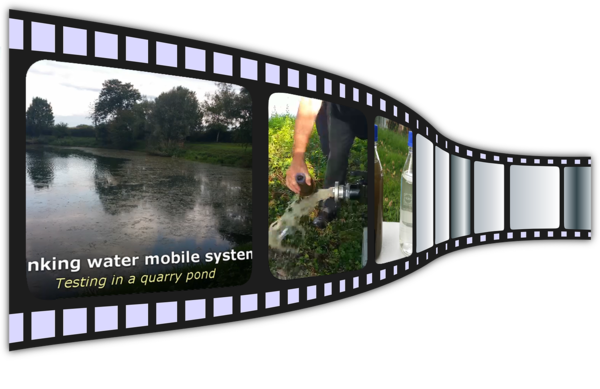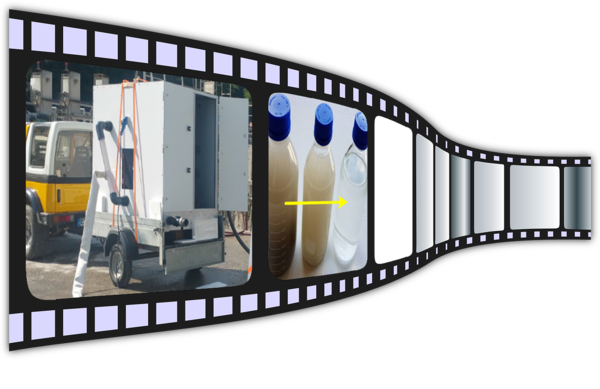NEC-10000 skid-mountable "Komplett-Technik"
The NEC-10000 skid-mountable "Komplett-Technik" is designed as a compact water treatment system for transport on pick-up trucks.
With its straightforward connectivity, system may be commissioned on an ad hoc basis wherever the need arises.
And once finished with the job, units are just as quickly ready for deployment elsewhere.
With the integrated pump, NEC-10000 is expressly designed for intake of water from collector basins and surface waters.
The water is then processed by two filter stages and by the NECON 100% chemical-free residual disinfection electrolysis, for prolonged prevention of illness-causing bacteria.
For details on technical specs and P&ID, please refer to the NEC-10000 PDF brochure.
Update 2020: After some years of intensive R & D, co-funded by German government institutions, NECON have added anti-arsenic electrolysis to their water treatment portfolio.
In contrary to reduction or removal of other heavy metals, it can be difficult to reduce arsenic pollution with conventional waste water treatment.
Hence the NECON approach with a preceding eletrolytic precipitation of the arsenic before is filtered out.
Consequently, treatment of water that is polluted with arsenic should first rectify other excess parameters (for example excessive pH, heavy metals, TDS, salts, scaling minerals, coloration, ...), by using conventional prefiltration of waste water treatment, only then apply NECON eletrolytic arsenic treatment as a final stage.
Multiple benefits in aiding underdeveloped regions: The added high-volume anti-arsenic treatment ensures human-safe potable drinking water in areas with arsenic-contaminated surface or ground water, and offers further benefits when used in applications such as plant irrigation.
Click here for some video impressions of the NEC-10000 batch for the second NECON development aid project in Peru. It was approved by the German gov develoPPP.de/ DEG institution, right after the successful completion of the NECON anti-arsenic technology.
The population in northern Peru is highly endangered due to water resources with arsenic contamination levels that are among the highest in the world.
Interchangeability of disinfection and of anti-arsenic electrolysis units:
The same NECON system models as they are known for disinfection may simply be fitted with anti-arsenic electrodes instead of those for control of harmful microorganisms.
1. Drinking water
For communities that are not connected to municipality water supply networks and thus have no other option than to use untreated water sources.
Once treated surface water is delivered to local water reservoirs in local villages, it may be supplied directly to households (via pipeline network, where existing) or collected by residents.
For a sample calculation of tremendous cost benefits compared to bottled water refer to the description of drinking water project in Peru, supported by German government development aid.
2. Disaster aid
Environmental disasters cutting-off whole geographic areas from supply of drinking water, call for high-output water treatment, that may be swiftly deployed and moved between areas in need.
Check the video how NEC-10000 turns stagnant and murky pond water into crystal-clear, neutral-tasting water and the excellent laboratory results (NEC-10000 PDF brochure, page 7).
3. Production use
Water as a resource becomes too valuable to be simply discharged into the canal or nearest river after use.
Increasingly, municipal water supply is subjected to quotas, often due to increasing dry periods.
Thus production plants are forced to take service water supply in their own hands.
On-site treatment for re-use can pay off, but choosing system mix of treatment stages required for production- quality water may appear overly complex.
Check the video how NEC-10000 in one single pass tremendously improves on basic ordinary sludge-removal in sedimentary tank!
4. Farming
Farmers face serious harvest-crippling and income losses due to
- polluted irrigation water,
- plant and crop fungus,
- declining acceptance of conventional permissive pestizides use, and
- excess arsenic accumulation in produce (rice, wheat flour, vegetables).
Authorities and purchasers of produce are increasingly aware of disease-causing arsenic accumulation in human body!
 Made in Germany
Made in Germany
